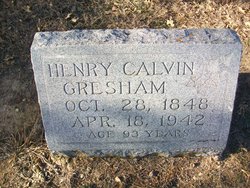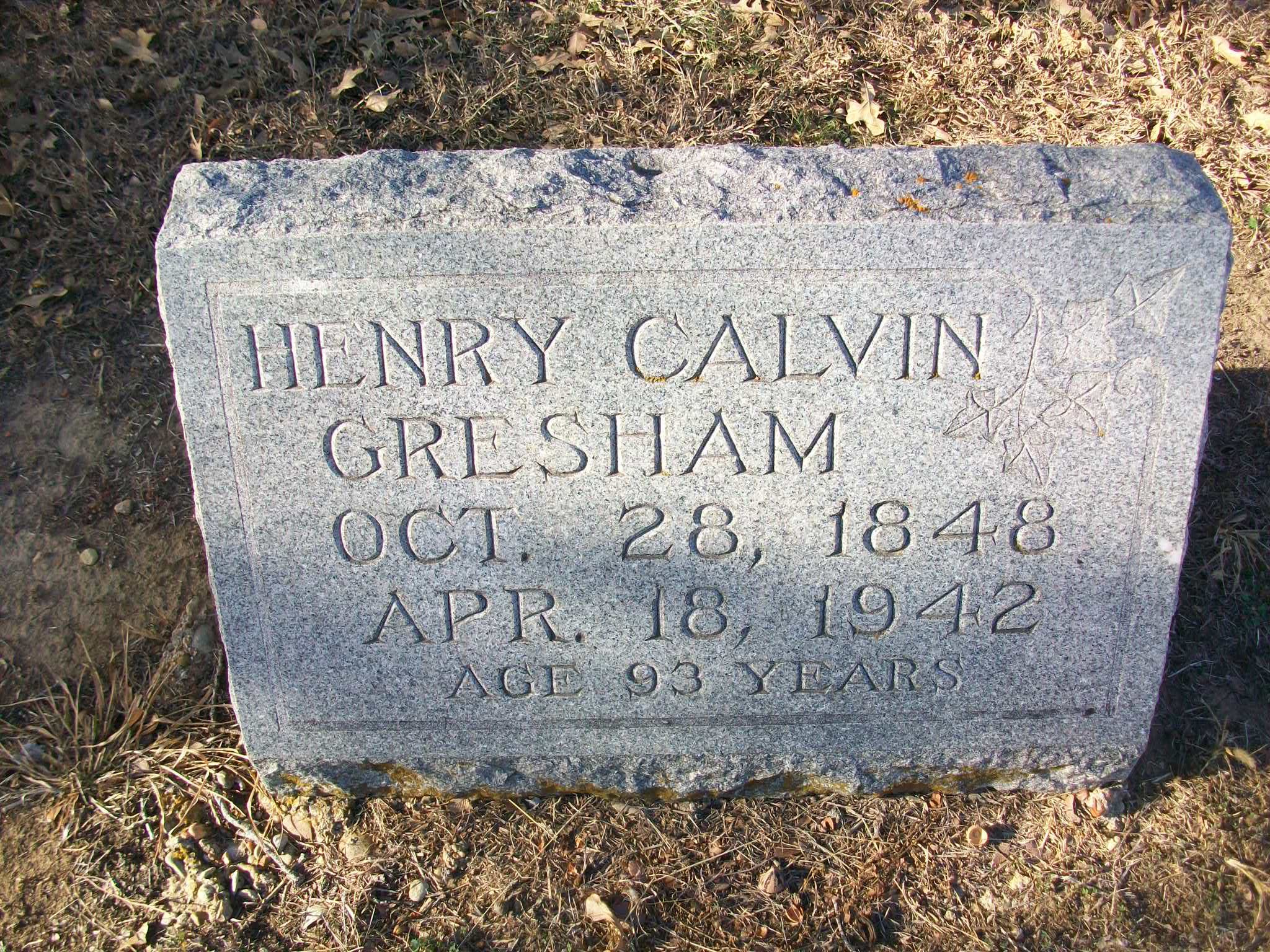Selling his interest to his partner he started for Texas with less than four hundred dollars. Fifty dollars of this was expended on the journey. He made the trip by way of Richmond, then to Wheeling, West Virginia, by boat from there to Cincinnati, and by train to Fort Worth, and was a passenger on the old Johnson stage to Cleburne where he arrived September 15, 1877, thus beginning a permanent residence that has continued now forty-four years. He went to Cleburne because the only man in Texas whom he knew was located there, J. S. Taylor, an old Cleburne merchant. The day after his arrival he was clerking in Mr. Taylor's store and continued in his employ for nine years. On leaving he and two other clerks of Mr. Taylor, Nix, and Baird joined in establishing a business of their own in 1885, and the firm, Nix, Baird & Gresham and later Nix & Baird, continued in business until 1899. Mr. Gresham left this firm to spend a few years recovering his health much of the time in travel through new districts in Virginia and North Carolina. With restored health he returned to Texas and resumed business as a real estate operator, opening up additions in Cleburne and putting the property in the hands of a real estate firm that sold the lots. At the same time, he was a stockholder in the Heron-Hodge estate operations until 1913 when the Home National Bank was organized with him as one of the original stockholders. He was the second president chosen to guide the affairs of the bank and was active in the management for three years, and has since been chairman of the board of directors.
As an influential and old time resident Cleburne owes Mr. Gresham its chief debt for the constructive efforts he has put forth in matters of improvement and upbuilding. He has provided the capital and enterprise for the building of many homes and has thus afforded adequate facilities for the increasing population of the county seat. His interests and means have been liberally bestowed upon urban matters of the town and have been a genuine contribution to the substantial welfare. This has been in the nature of public service, while formal politics and public office have had no attraction for him. Neither has he been a fraternity man since his interests are primarily those of the home and his own fireside. He is a member of the First Baptist Church and during World War I was a bond buyer and contributor to other patriotic causes.
SOURCE: History of Texas. Fort Worth and the Texas Northwest Edition. Edited by Capt. B.B. Paddock, Volume III. The Lewis Publishing Company. Chicago and New York. 1922
Selling his interest to his partner he started for Texas with less than four hundred dollars. Fifty dollars of this was expended on the journey. He made the trip by way of Richmond, then to Wheeling, West Virginia, by boat from there to Cincinnati, and by train to Fort Worth, and was a passenger on the old Johnson stage to Cleburne where he arrived September 15, 1877, thus beginning a permanent residence that has continued now forty-four years. He went to Cleburne because the only man in Texas whom he knew was located there, J. S. Taylor, an old Cleburne merchant. The day after his arrival he was clerking in Mr. Taylor's store and continued in his employ for nine years. On leaving he and two other clerks of Mr. Taylor, Nix, and Baird joined in establishing a business of their own in 1885, and the firm, Nix, Baird & Gresham and later Nix & Baird, continued in business until 1899. Mr. Gresham left this firm to spend a few years recovering his health much of the time in travel through new districts in Virginia and North Carolina. With restored health he returned to Texas and resumed business as a real estate operator, opening up additions in Cleburne and putting the property in the hands of a real estate firm that sold the lots. At the same time, he was a stockholder in the Heron-Hodge estate operations until 1913 when the Home National Bank was organized with him as one of the original stockholders. He was the second president chosen to guide the affairs of the bank and was active in the management for three years, and has since been chairman of the board of directors.
As an influential and old time resident Cleburne owes Mr. Gresham its chief debt for the constructive efforts he has put forth in matters of improvement and upbuilding. He has provided the capital and enterprise for the building of many homes and has thus afforded adequate facilities for the increasing population of the county seat. His interests and means have been liberally bestowed upon urban matters of the town and have been a genuine contribution to the substantial welfare. This has been in the nature of public service, while formal politics and public office have had no attraction for him. Neither has he been a fraternity man since his interests are primarily those of the home and his own fireside. He is a member of the First Baptist Church and during World War I was a bond buyer and contributor to other patriotic causes.
SOURCE: History of Texas. Fort Worth and the Texas Northwest Edition. Edited by Capt. B.B. Paddock, Volume III. The Lewis Publishing Company. Chicago and New York. 1922
Family Members
Sponsored by Ancestry
Advertisement
Records on Ancestry
Advertisement















